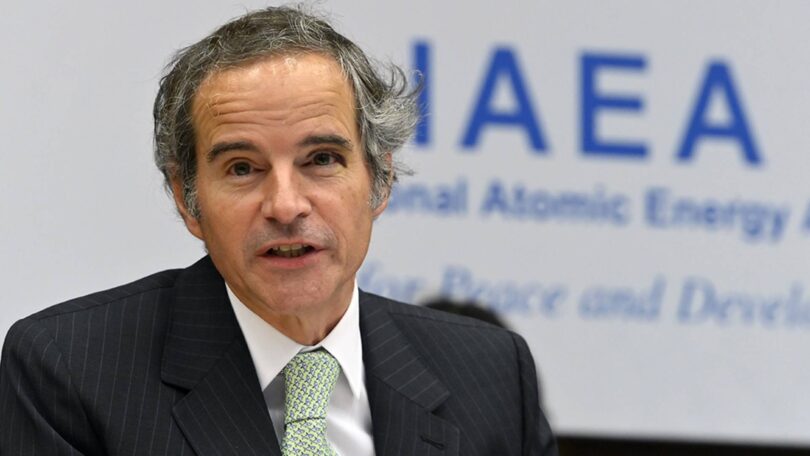The International Atomic Energy Agency (IAEA) Chief Rafael Mariano Grossi recently visited Japan’s defective Fukushima nuclear plant and observed on going discharge of radioactive wastewater into the Pacific ocean that caused serious concerns among the global community and opposed by fishing groups and neighboring countries. The People Republic of China (PRC) banned all imports of Japanese seafood immediately after the release began a few months back. The Fukushima plant’s power was hit by an earthquake and tsunami in 2011 which triggered meltdown of three reactors and causing large amounts of radioactive wastewater to accumulate. After more than a decade of cleanup work, the plant began discharging the water diluting it with seawater on Aug last year, which is likely to take decades to fully purified the plant from radioactive contamination.
Although, the IAEA Chief did not objected Tokyo’s release of nuclear contaminated water in to the sea but the environmental group claims that the 1.23 million metric tons of water stored at the affected plant since of the 2011 Fukushima Daiichi nuclear disaster contains dangerous levels of the radioactive isotope Carbon-14 and other hazardous radionuclides, which would have serious long-term consequences for communities and the environment as the water is released into the Pacific Ocean. There are apprehensions that radioactive water could have negative impact on marine life while use of contaminated seafood could ultimately affect human health. Tritium, a radioactive isotope of hydrogen, cannot be removed from the contaminated water due to technological limitations which will surely destroyed seabed composition and vegetation.
Presently, International organizations, NGOs, civil society groups and local residents including fishermen protesting the Japan government’s decision to release the radioactive water in to the sea. Although, the IAEA declared the radio-logical risk very negligible, but years long contamination of fresh seawater might have negative affect on human and marine life in the long run. Historically, major nuclear powers have been using global waters for nuclear experiments and explosion in the past which not only massively polluted environment but perished valuable species, sea plants, and ecosystem. Hence, a controlled damage is not a trade in loss deal for both the Japanese government and the International Nuclear Agency as well. Apparently, the quote testifies its worth in this case that the leaders always owe a brutal heart in their chest that is filled with resoluteness with no dimness and apathy.







